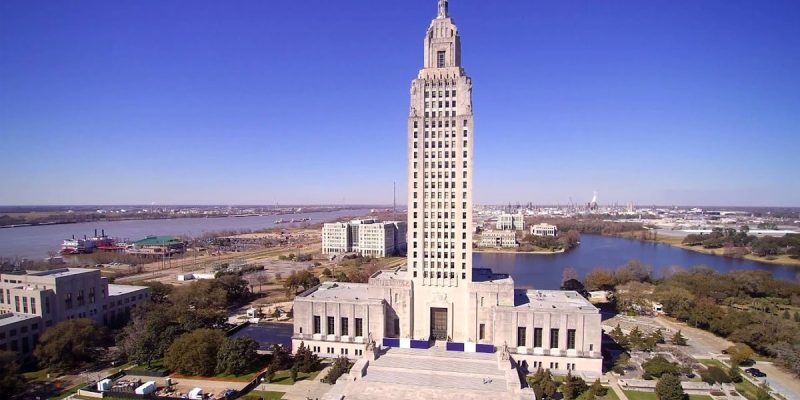My bet is that almost no one understands what really happened in the Senate and Government Affairs Committee as it shot down the plan, favored by Secretary of State Kyle Ardoin and, more importantly, Gov. John Bel Edwards, to turn Louisiana’s elections into an exercise in mail-in voting.
To believe the media, there was a rejection of democracy in favor of a power grab by the Republican majority on the committee. The Republicans supposedly created this great affront to the media’s liberal sensibilities by refusing to let the Secretary of State, a Republican mind you, and the Governor liberalize the use of mail in ballots for two upcoming elections.
Cutting through the media’s outrage, there were far more subtle issues at play. But of course, since the media never bothers to report on the Republican position, readers were left with only the media’s colored interpretation of events.
First some background, one of the main topics for Democrats today is what their talking points refer to as “election fairness.” One of the major planks of that effort is allowing unfettered mail-in ballots replace the well-trusted practice of voting in person, secured by a proper ID. To their great frustration, Democrats have been unable to build the case to rewrite state election laws to allow same day registration, universal vote by mail, no ID when voting, and many other significant changes to our hundreds of years old voting and election systems. One can believe what one wishes about the sincerity of Democrats, but it may just be coincidence that this rather sudden epiphany of desire to liberalize voting techniques aligns with their desire to open our borders to millions of illegal, but erstwhile Democrat, immigrants.
The media is quick to cite that there have been no criminal issues resulting from the narrow vote by mail system currently in use in Louisiana. To that I respond with two words – “street money.”
What you may ask is street money?
Well, it is the well-known practice by which massive sums of money flow to local political activists from generally unreported Democratic sources; money to be used to induce large blocks of people to vote a certain way. Some is handed out in cash, some by free food or liquor, all sorts of ways. In the recent gubernatorial election, it was widely rumored that the remarkably high turnout in certain areas of New Orleans may have been cultivated by literally hundreds of thousands of dollars of street money poured in from out-of-state Democratic sources. Maybe it was just coincidence that those certain areas voted in historically disproportionate numbers, or maybe not.
Buying votes with street money is clearly a violation of the law, but of those who benefit from the use of street money, who would ever move against the violators of those laws? So when an idea such as the limited expansion of universal mail-in ballots is brought before Senators who are sincerely concerned for the sanctity of elections, they reflect on how street money and other nefarious techniques are already being used to skirt the line of legality to defeat fairness in elections. Imagine under universal mail balloting how easy it would be for well-funded operatives, using their street money networks, to coerce people into signing away their right to make a fair electoral decision. That fear disturbs many citizens, so it is easy to understand the cynicism of Senators when they are asked to allow the incremental dismantling of our election laws.
Other than the Republicans standing on principle to protect elections, this Committee vote went further by demonstrating the true significance of the 2019 elections. Nationally, the media celebrated their belief that the re-election of John Bel Edwards demonstrated that the South was not solidly conservative, and they hinted that a Democratic resurgence was coming. They did not mention that Edwards, aided by that remarkable turnout in New Orleans, was re-elected against a political unknown only by the narrowest of margins. Nor did they mention that in the same election the legislature became far more conservative than it has ever been. That conservative swing in the legislature is what was reflected by the Committee vote.
Advertisement
As Louisiana faces perhaps its greatest economic crisis since the Great Depression, the governor now knows that he does not have a friendly Senate to help him govern Louisiana through outdated liberal policies. This vote, coupled with the recent REC vote, makes it clear that it is a new day for Louisiana government, and despite the media’s refusal to fairly report on conservative policies and leaders, business as usual in the legislature must not be expected.
Long before Coronavirus hit and the energy sector collapsed, Governor Edwards’ Louisiana was one of the worst performing states in what was the greatest economic boom in US history. Nothing has changed in Louisiana, except the two underpinnings of our already weak economy, tourism, and energy, are now drastically crippled. By his history, the Governor will want to revert to the same policies that led to so much economic malaise in the first place, but now he knows that he will not be able to.
The vote in Committee was huge. It signified that we will not surrender the security of our elections to liberal ideology, and it signified that the days when a liberal, populist governor could depend upon the Senate to back him up are over. He will now have to work with conservative Senators in order put Louisiana on the right track.
Should he not so choose, he will find that four years is a very long time indeed.
Advertisement
Advertisement

